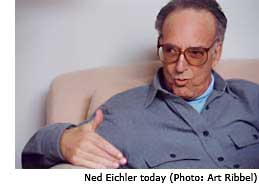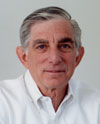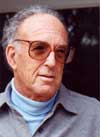Last Days of Eichler Homes - Page 3
Based on discussions with his father, R.J. Parr contended that Joe Eichler had misrepresented the financial health of Eichler Homes when he agreed to Parr and Bryson's takeover, because the senior Parr discovered that even monies for operating capital were insufficient. In September 1966, only four months into Parr and Bryson's tenure, the situation had become so dire for the new owners that they filed a $15.8-million suit against Eichler (and his two sons) for "illegal tyranny." By late 1966, as part of their settlement, Parr and Bryson gained full control of the company with Eichler's resignation.
During the following months, it became publicly evident that the company was failing. Court proceedings began at the instigation of creditors, and Parr was subpoenaed to appear in court with increasing frequency over the next year to answer for the debts. Despite the fact that Eichler Homes was essentially broke, the courts continued to pressure Parr and Bryson to honor the company's obligations. Believing Eichler Homes to be in better financial health than turned out to be the case, Parr had pledged to honor its debts in full, using his own assets as collateral. When accurate accounting was made and the creditors began their legal pressures, Parr became personally liable. Finally, the principal lender to Eichler Homes, the Chartered Bank of London, called in their loan, and the company was all but finished. Parr and Bryson, both of whom had been living in Eichler homes in the Harbor Point subdivision at Marin's Strawberry Point, having by that point no recourse—and apparently, according to Parr's son, no support from Eichler, who as chairman was legally protected from the effects of bankruptcy—both fled. Parr and his family moved to Florida. Bryson had mysteriously left several weeks ahead of Parr, reportedly leaving behind his wife and children. Eichler Homes dissolved in 1968.

Joe Eichler had taken some big risks building in San Francisco, but as was his habit, he had plunged ahead with enormous enthusiasm, expecting to succeed despite the odds. The focus of considerable praise, those projects were consistent with progressive ideas for urban residential design, and remain a testament to Eichler's commitment to innovative design and socially responsible development. One suspects that, in the end, it would be the social benefits that would have mattered most to Eichler, a supposition that may be corroborated by a recollection of Charles Slutzkin, who noted that Eichler's office was surprisingly free of any record of the many awards his company earned over the years. Instead, one photograph was given prominence behind Eichler's desk: a picture of two children, one black and the other white, walking to school in Lucas Valley together with their arms around each other.
Charles Slutzkin:
Assistant to Joe Eichler,
1964-'66

"Joe Eichler was aggressive, he was a gambler. He didn't dip his toe in to see how the water was. He leaped in. And the aggressiveness and the gambling allowed him to start that business and succeed. And then under different economic circumstances, they led to the demise of the company. Back then, I got concerned enough about what I saw that, on my own, I ran a financial analysis of the company, and then tried to explain to Joe what I had seen as the problem. But he didn't want to talk about it.
There wouldn't have been an Eichler Homes if Joe hadn't had these character attributes that created something pretty special out of nothing. Then when you have those same personality characteristics in a different period of time, his strength became his weakness."
Ned Eichler:
Son of Joe Eichler
and Eichler Homes Vice-President until 1966

"Late 1966 was a point at which my father and I were really at logger heads about what to do. What I wanted to do was to put the company in Chapter 11 bankruptcy, and try to work out something, and I had some ideas on how to do this. My father did not want to do that—for two reasons. One, he claimed that he just didn't believe it was necessary, that we could survive somehow. And secondly, he was concerned about how that decision would reflect itself.




